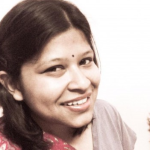In a country where economic development and caste discrimination have been issues, feminism is not given much regard. Yet now increasingly women are beginning to speak up. Women safety issues along with other kinds of issues associated with women are coming under the scanner. Furthermore, most recently, with the banned release of India’s Daughter, free speech in the context of women’s issues has also been limited. In fact, recently, one person has had a FIR filed against him for showing the documentary despite orders that India’s Daughter cannot be shown.
To consider an interpretation of Rawls, who wrote a work of political philosophy and ethics called A Theory of Justice, – “Rawls allows that under particularly dire conditions, when bare survival or the pursuit of the means for a minimally comfortable life is the dominant concern, and when the necessary prerequisites for the effective exercise of the basic liberties are lacking, it may be rational to sacrifice basic liberties for the sake of other goods such as increased security or economic development” (Tim Scanlon: 1999: 182) which can be applied to understand better the logic behind the ban of the Nirbhaya case and most importantly the ban of India’s Daughter. Hence, coming back to the point earlier made that in a country such as India, it can be asserted that the government has other priorities.
In, India, when a woman comes across as being different by her sense of dress and attitude, she becomes the center of attention because she is not following the norm of behaving traditionally. This is even more so when she has an occupation. Hence, the issue is not that she has an occupation and is earning money, but she is not behaving along the norms of what womanhood ascribes. Women too sometimes turn up their noses in disgust when women don’t follow the traditional norms of womanhood. For many wonder why women want to join the work force, for example, as was shown by the Nirbhaya case, women are not necessarily safe to walk the roads at night. On an aside, there is in fact consideration to include an indicator as “percentage of women and men who report feeling safe walking alone at night in the city or area where they live,” which will form part of Goal 16, as part of the post-2015 development agenda, involving peaceful and inclusive societies for sustainable development, as put forward by the Leadership Council of the Sustainable Development Solutions Network (March 20, 2015).
Similarly, in a country where women have to reconcile a lot before choosing a career, namely family responsibilities and so on, they must by all choose careers that also resonate with their own personal meaning that they want to derive from life. Not all women want to have careers in fields that have traditionally gained acceptance. Many do, ultimately want to become teachers and principals for example. We must realize that a career is a personal choice – one that must be in alignment with degrees earned and so on. People therefore must therefore be open-minded with regard to the choice of career apart from recognizing that women may choose to have a career.
In a country of such high amounts of diversity in terms of languages, food customs and marriage customs, it is amazing to see such close-minded views. However, for all those who are questioning along these lines, it important to note many things such as the norm of patriarchy and the fact that women have consciously chosen to embrace the norms associated with womanhood and it has hence, garnered acceptance. It is those women who have careers as well are outwardly very unique in their behavior, they may have to try harder to find acceptance.
Yet in the past, as in the past when feminist movements were just beginning to spread across countries, “there was a greater tendency to question the traditional role of women among those who had a critical attitude towards religion, belonged to a religious or ethnic minority, had close ties to people actively involved in social reform and opposition movements, had a certain level of education, or had a broader perspective as an immigrant or foreigner” (Paletschek, S. and Pietrow-Ennker, B. 2004: 317). Hence, what India as a nation, especially masses in the cities, has to increasingly reconcile with is the fact that those with the more open minds and who deviate can truly transform slightly from what traditional roles of womanhood ascribe.
References:
T.M. 1999. Rawls’ Theory of Justice in The Philosophy of Rawls: A Collection of Essays, eds. Henry S. Richardson and Paul J. Weithman, Garland Publishing, Inc, USA, pp. 169-205.
Paletschek, S. and Pietrow-Ennker, B. 2004. Women’s Emancipation Movements in Europe in the Long Nineteenth Century: Conclusions in Emancipation Movements in the Nineteenth Century: A European Perspective,eds., Sylvia Paletschek and Bianka Pietrow-Ennker, Stanford University Press, USA,pp. 301-333.
About the Author
Being an Indian woman, I am privileged enough to have been educated in some of the finest institutions in the world. I am a strong advocate for male-female equality and currently I am looking forward to contribute to the social development space in India.


Looking forward to reading your blogs, you can mail us your entries at WriteWithUs@csrindia.org, or upload them at Write With Us.
Donation for Centre for Social Research to Join our effort in rehabilitating Domestic Violence
Discuss this article on Facebook




